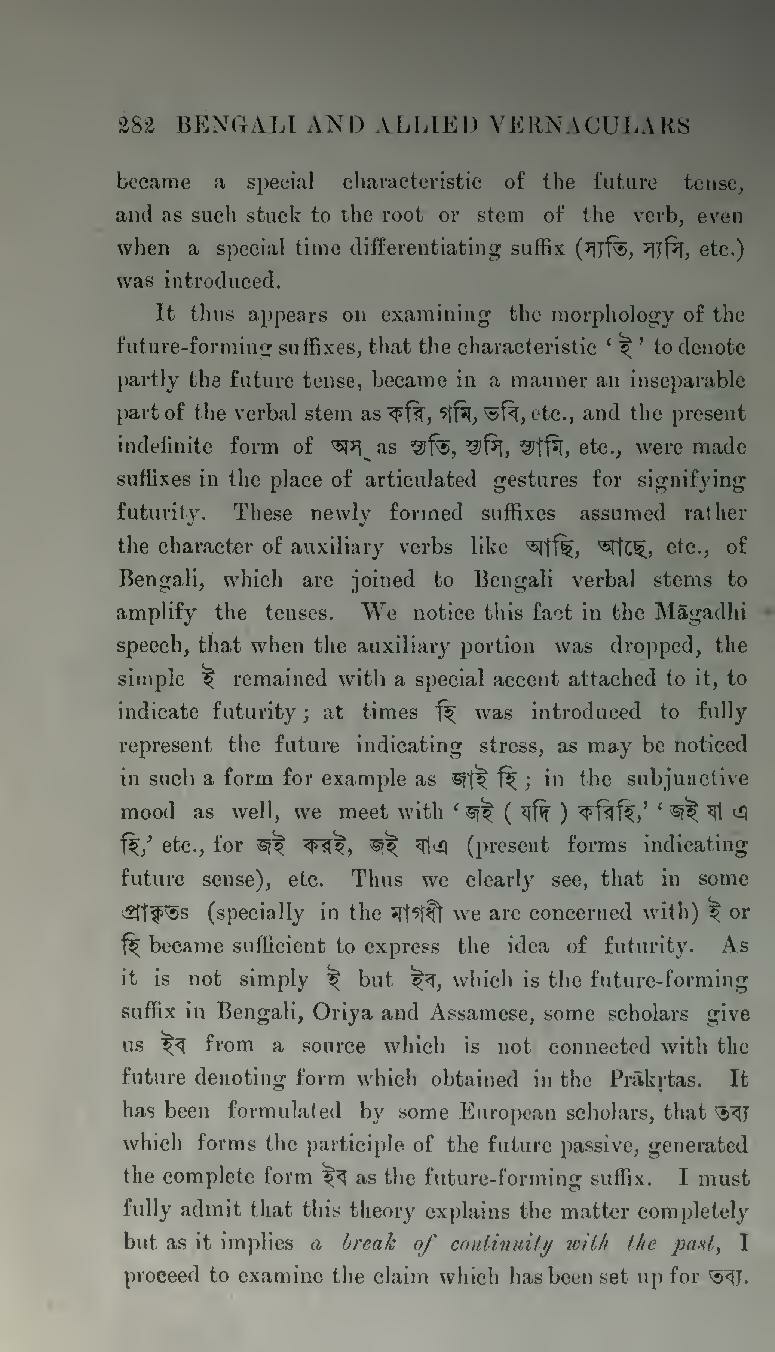became a special characteristic of the future tense, and as such stuck to the root or stem of the verb, even when a special time differentiating suffix (স্যতি, স্যসি, etc.) was introduced.
It thus appears on examining the morphology of the future-forming suffixes, that the characteristic 'ই' to denote partly the future tense, became in a manner an inseparable part of the verbal stem as করি, গমি, ভবি, etc., and the present indefinite form of অস্ as স্যতি, স্যসি, স্যামি, etc., were made suffixes in the place of articulated gestures for signifying futurity. These newly formed suffixes assumed rather the character of auxiliary verbs like আছি, আছে, etc., of Bengali, which are joined to Bengali verbal stems to amplify the tenses. We notice this fact in the Māgadhi speech, that when the auxiliary portion was dropped, the simple ই remained with a special accent attached to it, to indicate futurity; at times হি was introduced to fully represent the future indicating stress, as may be noticed in such a form for example as জাই হি; in the subjunctive mood as well, we meet with 'জই (যদি) করিহি,' 'জই যা এ হি,' etc., for জই করই, জই যাএ (present forms indicating future sense), etc. Thus we clearly see, that in some প্রাকৃতs (specially in the মাগধী we are concerned with) ই or হি became sufficient to express the idea of futurity. As it is not simply ই but ইব, which is the future-forming suffix in Bengali, Oriya and Assamese, some scholars give us ইব from a source which is not connected with the future denoting form which obtained in the Prākṛtas. It has been formulated by some European scholars, that তব্য which forms the participle of the future passive, generated the complete form ইব as the future-forming suffix. I must fully admit that this theory explains the matter completely but as it implies a break of continuity with the past, I proceed to examine the claim which has been set up for তব্য.
